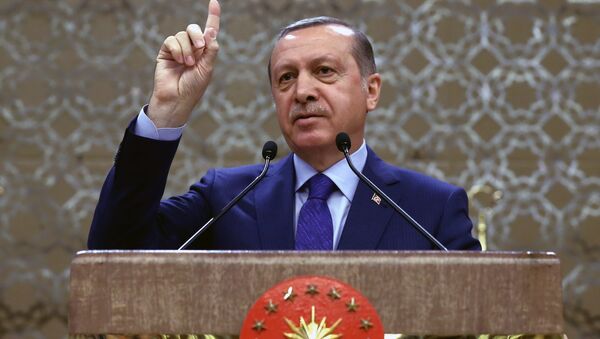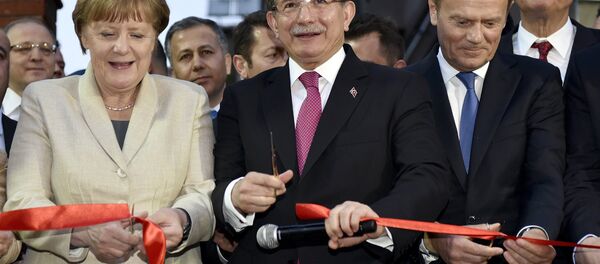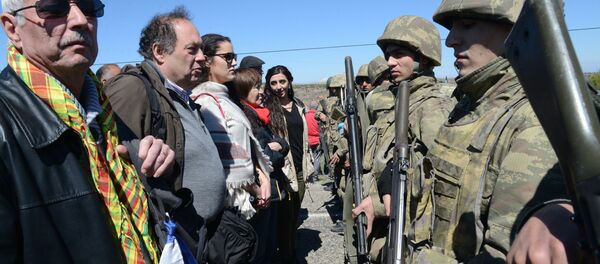"[President Recep Tayyip] Erdogan is obviously trying to centralize as much power as possible to himself and his presidential position. “Previously, the position of president within Turkish politics had been a largely ceremonial one…" Whiteman tells Loud & Clear.
"So many people are seeing this as an attempt to move Turkey into a dictatorship."
When Davutoglu was selected, it was assumed that he would follow Erdogan’s lead. But the prime minister proved himself to be more independent than the president has liked.
"Local Turkish media is reporting that this is a coup, an AKP – Justice and Development Party – coup against Davutoglu to try and stop him from stealing the lead from Erdogan, as it were," Whiteman says.
The frustrations lie in Davutoglu’s preference to negotiate with Kurdish rebels in the country’s southeast, as well as the fact that Western leaders tend to view the prime minister in a more sympathetic light than President Erdogan.
The president’s popularity within his own party is also questionable.
"Obviously, in order for him to do what he has done…it would seemingly suggest that he [Erdogan] is more popular than Davutoglu within his own Justice and Development Party," Whiteman says. "However, how he is seen by the Turkish people, that remains to be seen."
Whiteman also discusses the Erdogan administration’s recent clampdown on press freedoms.
"Turkey, for a very long time, has been one of the most dangerous countries in terms of its press freedom, and this stretches back to before this latest string of arrests of journalists and academic," he says. "There’s a huge amount of fear that this could spill over into Turkey, and I think that the government is certainly exploiting this, using the fear to justify the measures it is taking.
"It’s difficult to tell: How much can the Turkish public take of this?" he adds, referring to the government’s seizing of opposition newspapers. "I’m not sure how much more of this can go on before people start rising up against Erdogan."
In addition to his attacks on the free press, Erdogan has also used the migrant crisis to gain favour among European leaders.
"Turkey has given very little employment, a tiny percentage, [as] under 10% of refugees who are in Turkey are actually employed, but billions and billions of euros are being pumped into Turkey in return. Turkey is basically serving as a lynchpin for the whole crisis with the EU.
"It could incredibly easily all collapse, certainly within Turkey, given the amount of people who are coming into Turkey who are going to be dissatisfied and who could potentially rise up themselves."




